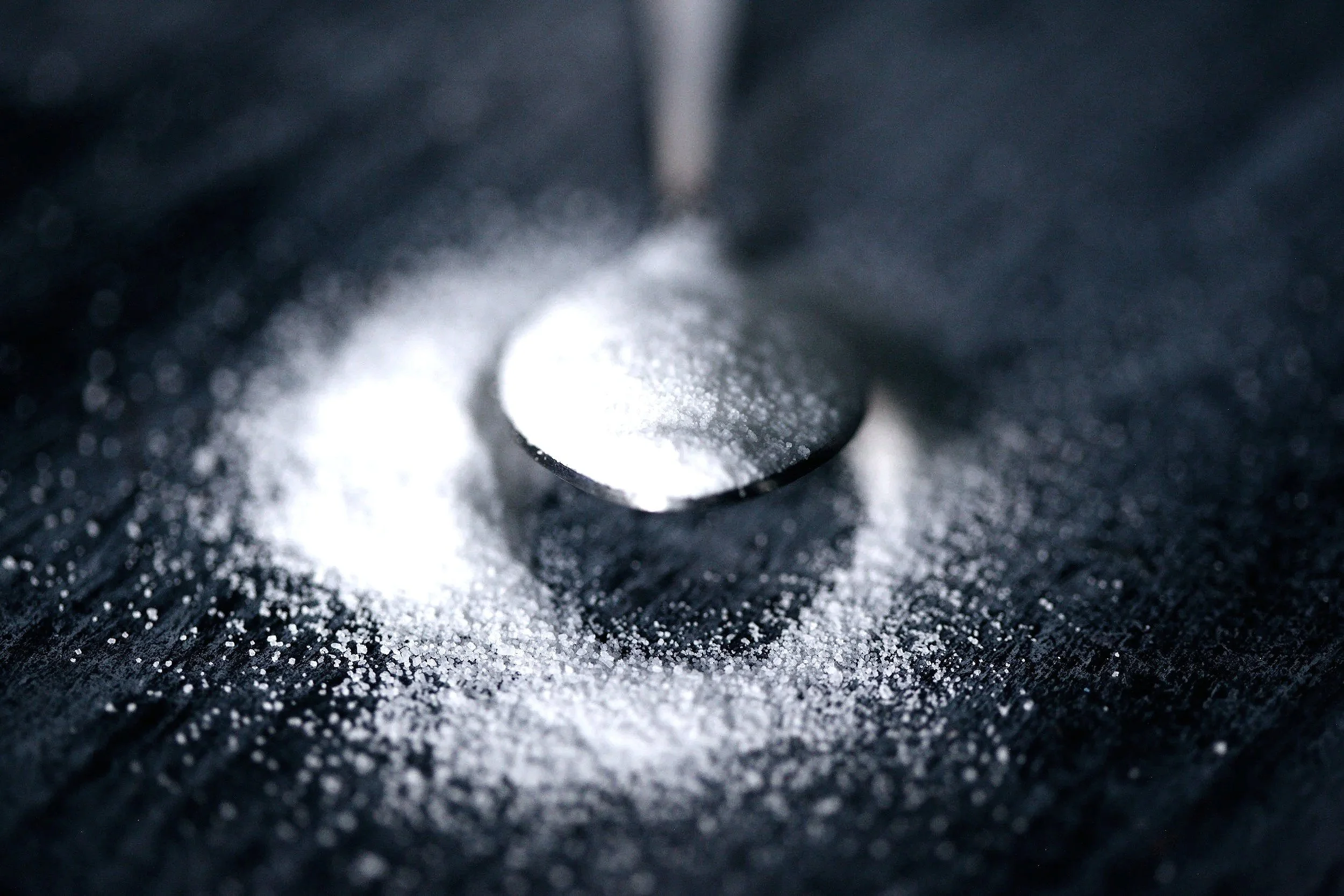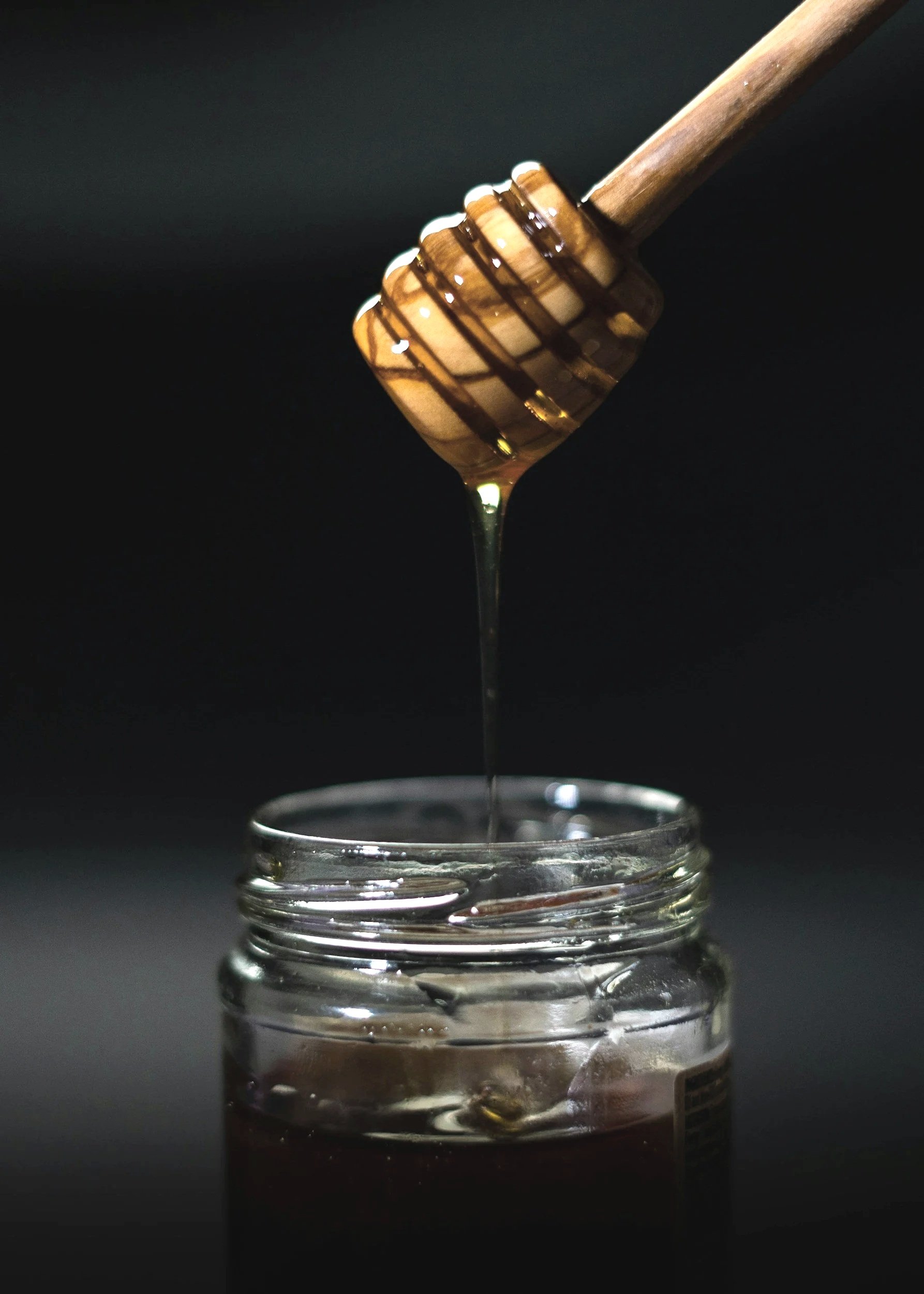Sweeteners -Which one to pick?
Sugar- good or bad?
Sweeteners: The Good, the Bad, and the Natural
Sweeteners are present in a lot of foods from the obvious like cakes and sodas to the hidden sugars in salad dressings and breads. As an integrative medicine physician, I often get questions about which sweeteners are “safe,” “natural,” or “healthy.” The answer is not one-size-fits-all. If you eat a lot of sweets, slowly cutting down the amount of sweetness retrains your brain and your taste buds craving more sweetness. You will be surprised! The key is to make small, steady changes.
Pick Natural Sweeteners if possible
Here is a breakdown of different types of sweeteners—natural and artificial—and their potential impact on health. Whether you're managing blood sugar, watching your weight, or simply trying to eat better, understanding your options can help you make more informed choices. A word about Glycemic Index - its the effect a food has on the blood sugar. A low number below 55 is preferred, and a number above 70 is considered high. because they can spike the blood sugar quickly.
🍯 NATURAL SUGARS: Glucose, Fructose, and Sucrose
These are the traditional sugars we encounter in nature and processed foods.
1.Glucose-
Fruits, starches, Primary energy source for cells, can have a high GI;( Glycemic Index) depending on the choice, spikes blood sugar if consumed in excess.
2.Fructose
Fruits, honey, agave, Lower GI than glucose, Excess may cause fatty liver and insulin resistance
3.Sucrose (table sugar)
Cane sugar, beets, Common sweetener, 50/50 glucose + fructose; overconsumption linked to metabolic syndrome
🔍 Health note: While naturally occurring sugars (in fruit, for example) are part of a balanced diet, added sugars in excess can increase the risk of obesity, type 2 diabetes, and inflammation.
🍬 NATURAL SWEETENERS (Minimally Processed)
These come from natural sources and often contain trace nutrients and a lower glycemic load.
1.Honey
~58 glycemic index, has Antioxidants, antimicrobial properties, High in calories and sugar
2.Maple Syrup
~54 glycemic index, Contains minerals like zinc, manganese, Still sugar-rich
3.Coconut Sugar
~35 GI , Contains inulin (prebiotic fiber), High in fructose
4.Date Sugar/Paste
~42 GI , high in Fiber, potassium, antioxidants, Can be calorie-dense
👩⚕️ Integrative insight: These are preferable to refined sugar when used in moderation. They may have a lesser blood sugar impact and provide some health-supporting compounds.
5.Agave Nectar
~10–19 (low GI), Low glycemic index; sweeter than sugar so less may be used, Very high in fructose (up to 90%); may contribute to insulin resistance, fatty liver, and increased triglycerides
Excess fructose is metabolized in the liver, where it can contribute to non-alcoholic fatty liver disease, elevated triglycerides, and insulin resistance.
Some individuals with gut dysbiosis or fructose malabsorption may experience bloating or discomfort after consuming it.
🧠 Integrative insight:
Agave nectar may sound like a “clean” or “natural” alternative, but its high fructose content makes it a poor choice for regular use, especially in people with metabolic issues, insulin resistance, or gut concerns.
⚖️ LOW CALORIE & ZERO CALORIE SWEETENERS
These are extracted from plants and used as sugar substitutes.
1.Stevia
Stevia plant, Zero-calorie, may lower blood pressure, Bitter aftertaste, GI discomfort in some
2.Monk Fruit (Luo Han Guo)
Monk fruit, Zero-calorie, heat-stable, Expensive, may be mixed with erythritol
3.Allulose
Rare sugars (figs, raisins), 90% fewer calories, low GI, May cause bloating in large amounts
🔍 Health note: These are promising for weight and blood sugar management. However, some people may be sensitive to their taste or digestibility.
⚠️ SUGAR ALCOHOLS (Polyols)
Often used in keto or low-carb products.
1.Xylitol
~13 GI ,Dental benefits, low GI, Can cause GI upset, toxic to pets
2.Erythritol
~0 GI, Well-tolerated in small amounts, May cause bloating, recent studies question cardiovascular safety
3. Sorbitol, Maltitol
~4-35 GI, Lower in calories than sugar, Laxative effect at high doses
🧠 Integrative perspective: These are okay in moderation, but the gut microbiome may be disrupted by regular or high intake, especially in sensitive individuals.
☠️ ARTIFICIAL SWEETENERS
Synthetic, lab-created sweeteners often found in diet sodas and packaged goods.
1.Aspartame
Equal®, NutraSweet®, Very low calorie,Linked to headaches, neurological concerns
2.Sucralose
Splenda®, Heat-stable, no calories, May alter gut microbiome
3.Saccharin
Sweet'N Low®, Long shelf life, Possible bitter aftertaste, concerns about cancer risk
🔬 Clinical concerns: While FDA-approved, some studies suggest potential for metabolic disruption, altered gut flora, and increased sugar cravings. Use with caution..
Dates and date sugar is a great choice when chosen for the right dish
. . . . . . . . . . . .
✅ How to Choose Wisely
Here are some guiding principles I often share with my patients:
Prioritize whole-food sweeteners (like dates, fruit, or small amounts of honey) when possible.
Read labels carefully—sugar is often hidden under names like maltodextrin, dextrose, or fruit juice concentrate.
Watch your total intake—no matter the source, overconsumption of sweeteners (even natural ones) can still affect insulin, weight, and inflammation.
Be mindful of your body's response—some people feel fine with stevia, others get headaches. Your body’s feedback is a valuable guide.
🔄 The Integrative Bottom Line
Most Sweeteners aren’t inherently “good” or “bad”—context, quality, and quantity matter. In integrative medicine, we recognize biochemical individuality, so what works for one person may not work for another.
When in doubt:
Choose natural and unprocessed
Use the smallest amount needed
Stay curious about how your body reacts
. . . . . . . . . . . .



